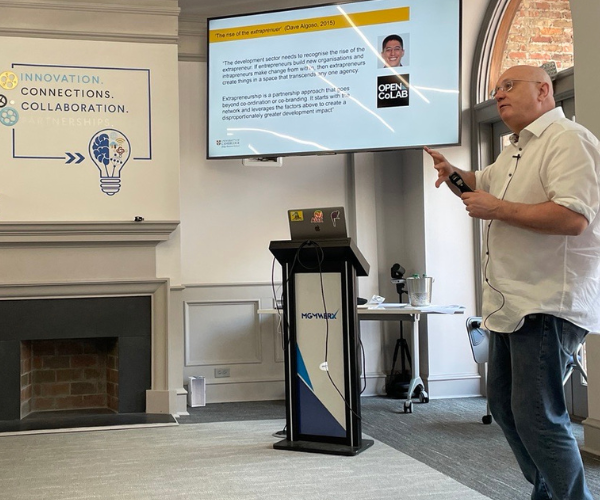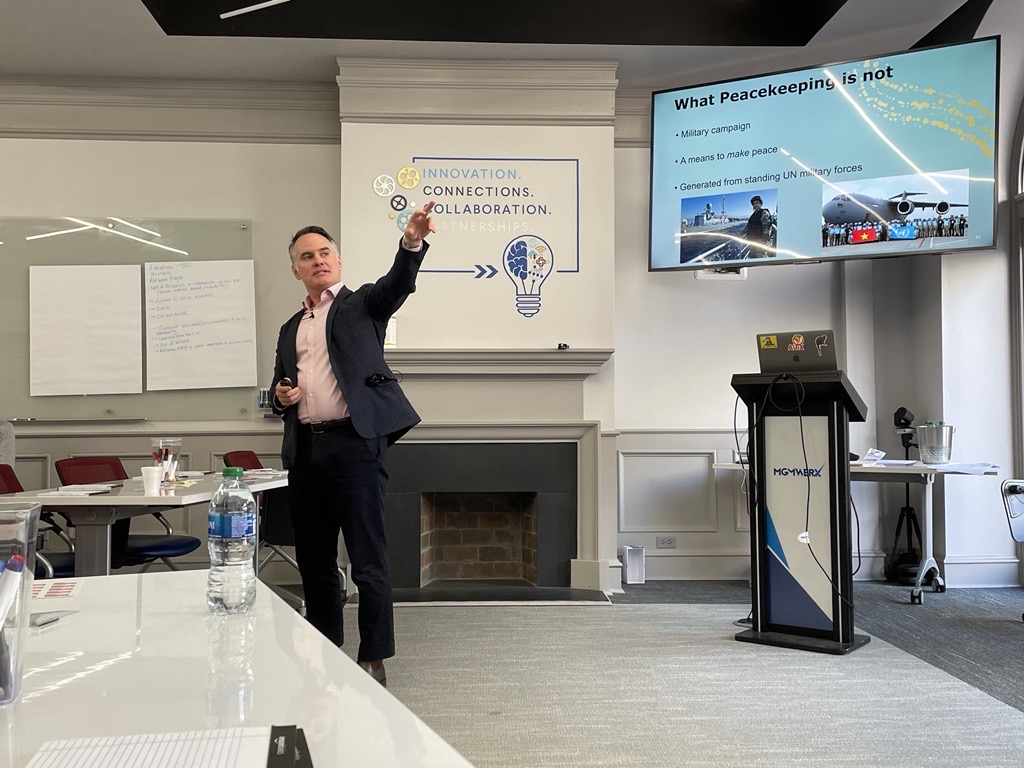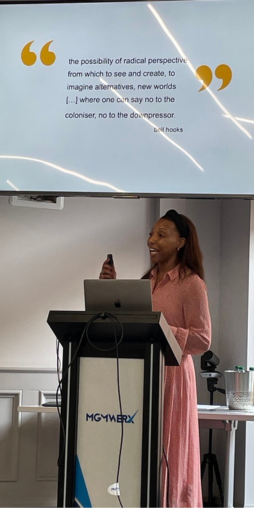Written by Dr Michelle Darlington, Head of Knowledge Transfer for the Cambridge Centre for Social Innovation.
Leadership in Social Innovation
In May 2023, researchers from the Cambridge Centre for Social Innovation partnered with AUiX – the Air University Innovation Accelerator, US Air Force – to deliver a unique three-day workshop in Montgomery, Alabama, as part of their LEDx (Leadership Educational Development Experience) series.
The Centre has contributed to LEDx events in previous years, where we spoke about social innovation and featured the work of some of our students, alumni, and fellows. This year the event took a different format – working groups who participated actively, engaging with key social problems facing Montgomery.
The history of Montgomery, Alabama
Montgomery is a city with a troubled past. The legacies of slavery and injustice are visible in the city itself, but so are the historic episodes of civil rights action. The site of the former slave market lies just metres away from the statue memorialising the arrest of Rosa Parks at the end of Dexter Avenue, where Martin Luther King Jr’s Church sits as a UNESCO World Heritage site. But the city centre remains quiet. The renovated Kress building where Rosa Parks worked, sits between derelict and empty shops. Like many of the buildings in and around Montgomery, they are being reclaimed by nature. Meanwhile, there remains a stark contrast between rich and poor.
Tourism is beginning to regenerate the city centre. Visitors are attracted by the rich history of the city, along with the recently expanded Legacy Museum, which tells the story, ‘from slavery to mass incarceration’, and the National Memorial for Peace and Justice, which dramatically commemorates the victims of lynching in the United States.
Another historic episode in Montgomery’s past was the Wright Brothers’ first flight. Montgomery became home to the Wright Flying School, now the site of Maxwell Air Force Base. The Air University now sits inside the fence of Maxwell to the west side of the city, an area surrounded by blight and abuse, with the divide between civilian and transient military populations evidenced by many of the troops and employees living either outside of or on the opposite side of the city.
Between base and place
What, then, is the relationship between the base and place? And how might it be different? These questions have been on the mind of Professor Neil Stott and Dr Bill DeMarco, Research Fellow of the Cambridge Centre for Social Innovation and Chief of Innovation Development for AUiX. This question led Bill to gain use of a building downtown as the AUiX headquarters, and to invite community members from across Montgomery to participate in this session of LEDx.
During the workshop, diverse teams were formed to represent military, academic, commercial, educational, and cultural groups. We asked questions important to the city, around the role of Maxwell in the local economy, the tourism industry, and educational outreach. The questions built on Neil’s fieldwork in 2019 and 2022.

one of the leaders of the workshops for the LEDx series.
The Centre’s co-Director Professor Stott, Dr Michelle Darlington, and Yvonne Lardner facilitated the talks and workshops. Also welcomed was Dr Jarrod Pendlebury representing the Australia Mission to the United Nations. Dr Pendlebury is also an Associate Research Fellow for the Cambridge Centre for Social Innovation.
Teams learned about social innovation according to the Centre and explored ideas around place building and regeneration.
It is the first time we have tried to convene a grassroots conversation between a military base and its local community. While there is a limit to what’s possible in three days, it was encouraging to see people from different perspectives working well together. We saw enormous creativity coming from the groups, with a commitment to continuing to work together and to take action on the issues raised with a shared sense of ownership.

and Associate Research Fellow for the Cambridge Centre for Social Innovation.
A key outcome for the group was a shift towards a shared sense of purpose. Rather than considering how Maxwell could benefit the local community, the emphasis was on how civilian and military groups could work together for mutual benefit.
What happens next remains to be seen. The Cambridge Centre for Social Innovation will continue to keep in touch with Montgomery and Maxwell and follow up in 2024 with another visit.



Leave a Reply